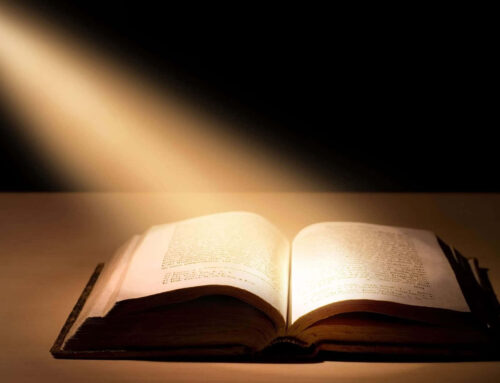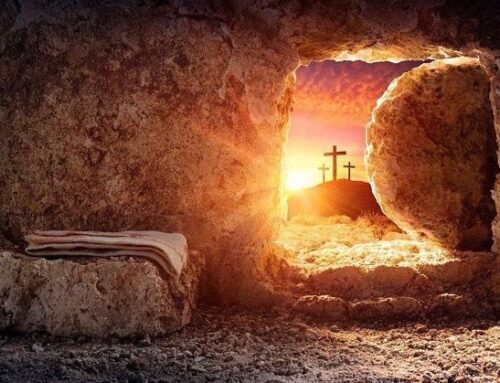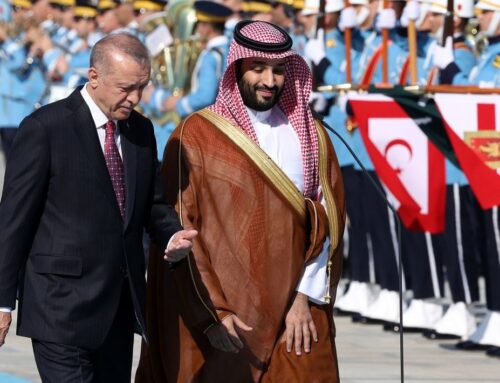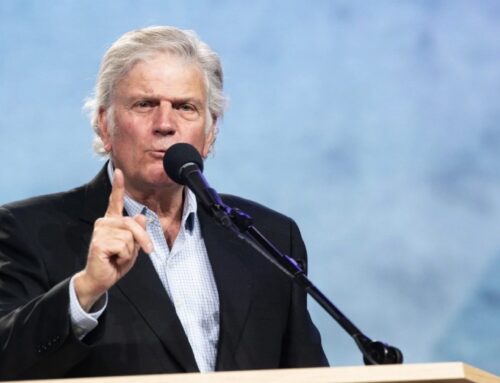
“A Little Lower than the Angels”
By Mark G. Johnston, Editor
Reprinted from the May 2023, Issue #716 The Banner of Truth Magazine
The debate over abortion has been reignited with a vengeance throughout the United States with the decision of the Supreme Court to overturn the 1967 Roe v. Wade ruling. It has also spilled over into other parts of the world where abortion is regarded almost as an inalienable right. In the midst of the tragedy of abortion itself and its slaughter of the unborn, there is an even more insidious tragedy: the disregard for what it means to be human.
Back in the 1970s Francis Schaeffer and C. Everett Koop produced a video series along with an accompanying handbook under the title, Whatever Happened to the Human Race? In a way that was cutting edge for that time they explored the grim implications of what inevitably happens when society begins to abandon any meaningful sense of the dignity and sanctity of human life.
By that time the impact of Roe v. Wade and its U.K. counterpart had already reached the point of effectively offering abortion on demand. In the space of little over a decade the shock value of what this legislation led to on both sides of the Atlantic—at least in secular eyes—had largely dissipated. But Schaeffer and Koop argued that this was far from the end of the story. By denying the right of protection to human life in its earliest stages, governments had in principle removed that same right to protection for the elderly and the disabled. If human life only is only afforded protection in the eyes of the state when it is deemed to be either wanted or useful, then the right to life itself becomes precarious.
All this to say the church desperately needs to have a good grasp of the doctrine of humanity at every point in its history and also a functional grasp of what this entails in its life and for its witness.
A number years ago I was attending a theological study conference in the U.K. when, over breakfast, one attendee asked, “What is the most important doctrine we need to address in our day?” And, without skipping a beat, Ranald MacAuley, Francis Schaeffer’s son-in-law, responded, “The doctrine of Man”. Through his own work with the L’Abri movement, founded by Francis and Edith Schaeffer, he had been very much involved with discussions surrounding the social, moral and cultural decline that was gaining momentum from the Sixties onwards. In that context it was clear that the shared understanding of the dignity of man which had underpinned civilization from earliest times was being called into question in a more radical way than had been seen in any previous era.
The prescience of Schaeffer and Koop’s video series and the observation made over breakfast at that study conference is not hard to see. What was deemed unthinkable just four decades ago has now become the accepted norm. Not only has the abortion rate escalated to staggering levels, but also the “right to die” movement has been growing in influence in every sphere of society. In many parts of the world euthanasia is already an accepted part of “life” and in many others it soon will be.
Of course, the repercussions of this fundamental shift in the definition of humanness have untold other dimensions. One only has to look at the daily reports and debates surrounding human sexuality, gender reassignment and the underlying issues of what constitutes ‘identity’ to realize that when we lose sight of the uniqueness of what it means to be human, confusion and collapse soon follow on a grand scale.
It would be futile to think that any meaningful answers to these issues will be found through either secular science or philosophy. Their professed “neutrality” and “objectivity” in the contributions they make to the debate are seriously skewed by the presuppositions of their own world views which, of course, see no place for any deity in the “world” of their perception. (Yet, if they were honest with themselves, they would be forced to admit to Paul’s charge of “suppressing the truth in unrighteousness” as he declares in Romans.) The only hope of turning the tide in these issues is through the church’s engagement with the world of our day— lovingly and persuasively—as we bear witness to Christ.
There is perhaps no passage in Scripture that captures the magnitude of what is bound up with this particular doctrine more than David’s words in Psalm 8. The fact that he addresses the humanity question in the context of a song designed for worship says it all. Far from being a Coplandesque Fanfare to the Common Man, it is a fitting outpouring of praise to the God who is man’s Maker and whose image is stamped all over our humanity—still there, albeit in a twisted form, even after the fall.
The fact that David praises God in this context, and does so in a way that ponders the wonders of God’s grace in the face of human sin and rebellion, speaks volumes in terms of how he understood the roots of his identity as a man made in God’s image and likeness. These roots were not to be traced downwards into the earth through an evolutionary theory of human origins; but upwards into the heavens—to God himself as our maker and sustainer. This highlights the fundamental flaw in contemporary human self-understanding. The race that was designed for dignity has chosen to cut itself loose from the God in whom alone supreme dignity is found. In so doing, it has plunged itself into an identity crisis of epic proportions with all the collateral damage to self-image and mental equilibrium that flows from this.
We can almost see the wonderment in David’s eyes as he reflects on these things and says not only, “what is man that you are mindful of him, and the son of man that you care for him?” (Psa. 8:6): he goes on to say, “Yet you have made him a little lower than the heavenly beings and crowned him with glory and honour” (Psa. 8:7). Calvin, in his commentary on the Psalms, points out that this description of man is intended to show human beings “as adorned with so many honours as to render their condition not far inferior to divine and celestial glory.” In other words, he is providing us with a fresh reminder of how godlike humanity is.
None other than Shakespeare, perhaps unwittingly, affirmed this in his play, Hamlet, in which the title character, Prince Hamlet himself says, “What a piece of work is a man! how noble in reason! how infinite in faculty! in form and moving how express and admirable! in action how like an angel! in apprehension how like a god! the beauty of the world! the paragon of animals! And yet, to me, what is this quintessence of dust?”
The church has not only been entrusted with the stewardship of the gospel; but, also, the guardianship of the very definition of what it means to be human.







Leave A Comment
You must be logged in to post a comment.